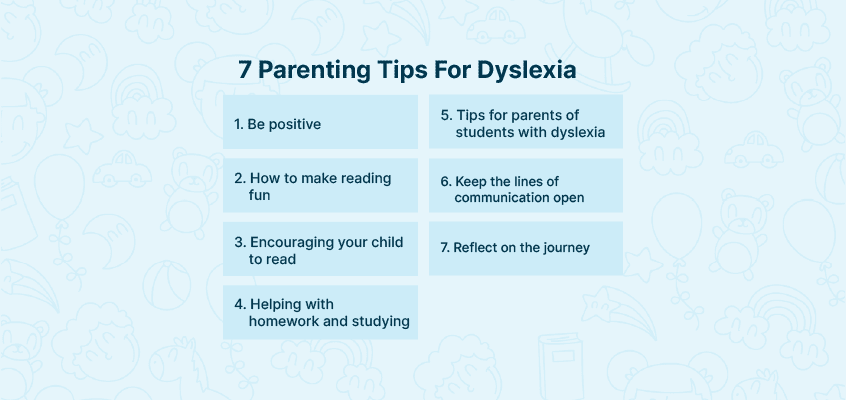Introduction
Parenting is a difficult task. Parents have to make many sacrifices and commitments to keep their little ones safe and happy! Parenting becomes even more complicated when children are born with learning disorders. Dyslexia is one such ailment that impacts both the child’s and parents’ quality of life.
Our Wellness Programs
What Is Dyslexia?
Dyslexia is a learning disability that impairs children’s reading, writing, interpreting, and comprehension. It might interfere with their progress in school and other daily tasks.
Parents tend to forget that dyslexia is a common struggle, and there are many ways to deal with it. People with dyslexia typically have normal brains and vision. Tutoring or a specialised education program can help most dyslexic youngsters succeed. Emotional support is also very crucial.
While there is no cure for dyslexia, early detection and management yield the best results. Dyslexia can go undetected for years. Many do not get a diagnosis until adulthood, but it’s never too late to get help.
Differences in the areas of the brain that process language cause the disorder. Imaging tests reveal that some regions in the brain’s left hemisphere do not function appropriately in persons with dyslexia.

Looking for services related to this subject? Get in touch with these experts today!!
Experts

Kirti Bajpai

India
Psychologist
Experience: 5 years

Mansi Chawla

India
Psychologist
Experience: 12 years

Sapna Zarwal

India
Psychologist
Experience: 19 years

Davis Emerson

India
Psychologist
Experience: 6 years
Why Are Kids With Dyslexia So Bright?
Dyslexia makes reading and spelling difficult. However, dyslexic people have other exceptional abilities. Dyslexia affects a lot of brilliant and talented people. Dyslexia is frequently associated with superior reasoning, problem-solving, and visual-spatial and motor skills. These are required for success in the creative arts, performing arts, athletics, engineering, and science. These skills make kids with dyslexia bright.
There is a theory that dyslexia has links to visual-spatial abilities. But it has not been proved yet. The evidence is mixed, ranging from poor to excellent visual-spatial power in people with dyslexia. According to a study demonstrating that dyslexia correlates with higher visual-spatial ability, children with dyslexia fared similarly to the controls. However, they did better in one measure. They performed better in the analytic spatial test but worse on visual-spatial tasks that involved implicit memory.
7 Parenting Tips For Dyslexia
So, here are seven helpful parenting tips for dyslexia that make the parent’s and child’s life easier.
Be positive
Having dyslexia is not the end of the world. Taking a positive approach to managing is one of the most important parenting tips for dyslexia. You must educate yourself on the topic to cultivate this positivity.
Find out as much as possible about the learning disorder. Make sure you get information only from the most trusted sources, such as a trusted mental health professional.
Dyslexic children may think of themselves poorly, especially if others laugh at them or don’t understand their problems. It is essential to explain the situation to keep them positive. They must expect the difficulties given the condition and that it is not their fault. It does not imply that the child is incapable of doing regular work.
How to make reading fun
Go a step beyond reading with one of the best parenting tips for dyslexia.
Rather than relying solely on your sight, multisensory reading emphasises using all your senses to read. This method works because multiple sensors stimulate multiple brain areas, leading to more significant learning.
Technology can also make reading easier for your kid with dyslexia. Children with dyslexia tend to have better verbal skills than writing skills. Therefore, text-to-speech software can be pretty helpful for them.
Encouraging your child to read
With practice, everyone improves their reading skills. Dyslexic kids are no exception. Ideally, they require more improvement than kids without the condition. Hence, make sure they get as much practice as possible. Remember that this might aggravate the child and those who teach them. Help them read the most interesting topics to make the process easier.
Helping with homework and studying
When at home, make sure you take time out to help your kid with homework and studying. Stay close to answer any questions they find confusing or read out sentences they don’t understand. You could also look at summer reading programs or weekend learning programs to help them improve.
Tips for parents of students with dyslexia
Since students with dyslexia find studies more difficult than others, provide them with extra help. You should collaborate closely with your child’s school to ensure that all necessary services and resources are available. As soon as your child is diagnosed with dyslexia, notify their school. Teachers and academic staff must be aware of your child’s unique needs.
Keep the lines of communication open.
The best way to provide emotional support for dyslexic children is simply to be there for them. When kids come home from school, keep your schedule open so you can talk and listen to what’s happening with their education.
Listen and understand their emotions. Make them feel cared for but don’t make them feel judged. Celebrate their success with them. Encourage them to do things that they are good at and enjoy. These activities give them something to look forward to, despite other activities in their lives being complex.
Reflect on the journey
Parenting a dyslexic child will be full of ups and downs, just like any other adventure. You go through times when you are furious or depressed.
If your child is experiencing similar difficulties, simply push through the hard times. Reflect on the times when you thought it was challenging to get through, but you still came out from the other end of the tunnel. Keep researching and fighting for your child and, most importantly, tell your child how much you love them.
Conclusion
Special children need special treatment. Help your child by getting help from the best mental health experts.

















I loved learning that kids with dyslexia can improve their reading skills significantly through as much practice reading as possible. My older sister has a 6-year-old son who has dyslexia. I think a good way for my nephew to get the practice he needs would be for him to work with a professional dyslexia tutor.